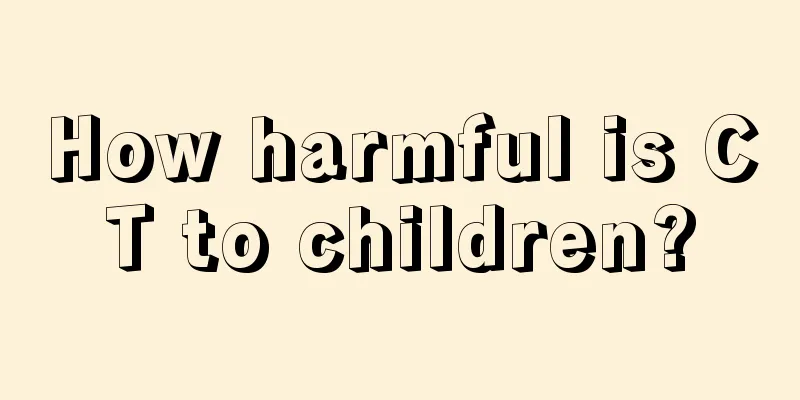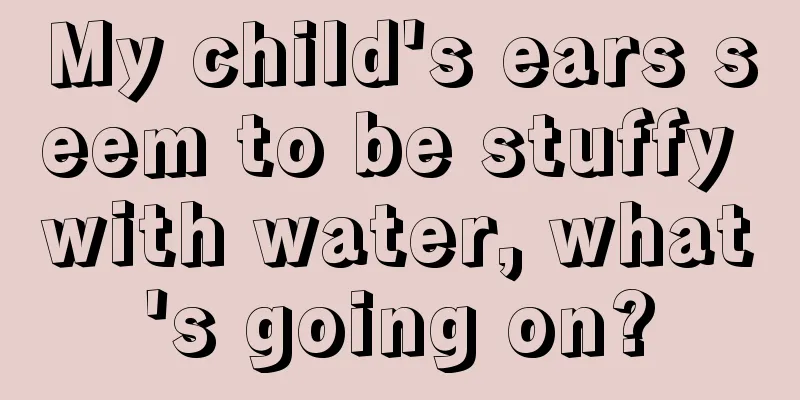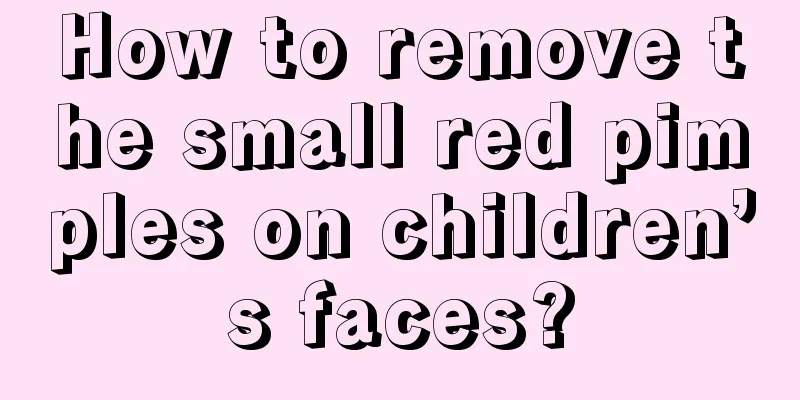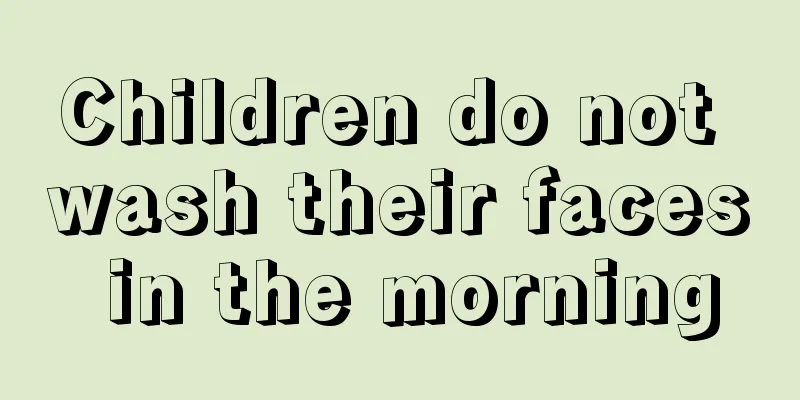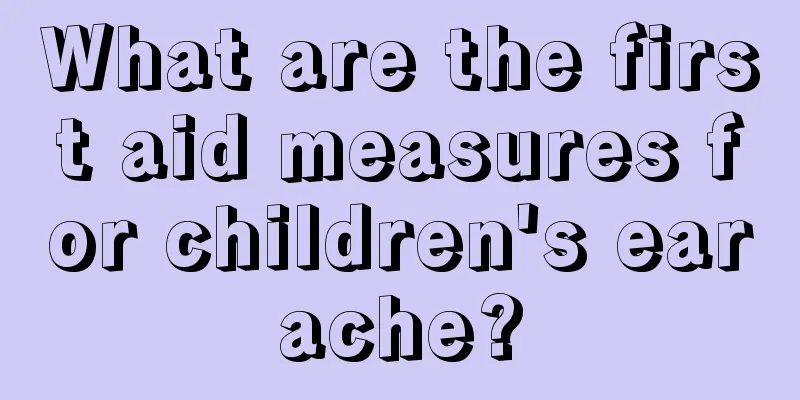What to do if your 6-year-old child is disobedient

|
There is no child who is not annoying. Although parents like children very much when they are obedient, they only want to use force to solve the problem when they are disobedient. Do not beat or scold children casually, otherwise it will leave psychological trauma on the child and will not be conducive to the healthy growth of the baby. What parents need to do is to reason with their children. Here are ten tips for parents to solve the problem of children's disobedience. Here are ten tips on how to deal with children’s disobedience. 1. Be friendly - If you use a normal tone of voice and a kind attitude when talking to your child, your child will be more likely to listen to you carefully. Don't use an impatient or even commanding tone. Young mothers sometimes have difficulty controlling this. The child may listen to you for a while, but it will soon turn into inner resistance and build a wall in the heart. Unless it is absolutely necessary and it is not a matter of principle, you must be kind to your children. I really dislike the practice of mocking and ridiculing children, especially some preschool teachers who have stern faces towards children, which adds a lot of invisible pressure on the children. 2. Pause - When your child is unable to accept your request for a while, or even when you have an argument with your child, you must control your emotions. You can say, "I don't want to deal with this issue now. Let's talk about it later." Cold treatment can work wonders. When the child calms down, he or she will take the initiative to show weakness to you. I have experienced this deeply. This makes me very happy about my child, because no matter whether he has done good or bad things, he knows very well in his heart, but he admits his mistakes and his attitude is still very sincere. I also understand that his purpose of "doing bad things" is, firstly, to attract the attention and surprise of his parents, and secondly, he does not know how to interact with other children, thus causing a conflict and evoking a reaction from the other party. 3. Moral - When a child makes a mistake or behaves rudely, do not punish him immediately. Instead, educate him in a friendly tone that he should pay attention to his behavior and manners. "You shouldn't throw toys around after you've played with them. Next time, please put them where they belong. Your toy shelf is the home of the toys. Toys should be returned to their homes after they've been played with, just like you. If you finish playing outside, and I leave you on the street and don't let you go home, do you think that's right?" Don't underestimate your child's IQ. He understands what you say, but he's just not good at expressing it. If you put yourself in the child's shoes, you will find it easier to accept your reasoning. If you criticize your child afterwards, he or she will cooperate with you very much and admit his or her mistakes actively. 4. Be positive - don't say to your child, "How many times do I have to tell you to brush your teeth?" Instead, say, "Go brush your teeth. I want to know when you can finish. I want to see if you can brush them clean." Don't pass on your bad mood to your children. Some parents lose their temper easily and speak without paying attention to the degree of their words. What they say can hurt their children's self-esteem. All the efforts you make and ten sentences of praise for your child cannot make up for one denial of him. 5. Explanation - When the child tells you why he does this, you should give the child the right to explain, let him briefly explain why he needs to do this, and then explain to him clearly what is wrong with doing this, whether he has any reason to do so, and the correct way to do it. Don't blame your child wrongly, distinguish the facts and have good judgment. I took my children to the park that day, and the mother of a girl kept saying to her child: "Don't touch your little brother's toy car, it's impolite." The fact was that the child was very happy to share toys with the little girl. The two of them got along very well, and finally the little girl reluctantly sent her to the door. 6. Cherish - You should not focus all your attention on your child’s inappropriate behavior. In fact, every time a conflict occurs, it is an opportunity for us to educate our children. Don’t let it go. Make good use of this opportunity to educate your child in the right direction. Children like to hit other cars with their bicycles. This is actually a way for boys to vent their skin hunger. There was a saying in the past: If you don't punish him for three days, he will tear off the tiles on the roof. What I mean is that naughty boys like to achieve skin contact by fighting or even being beaten. This is infant psychology, and I will reveal it in full in the future. So can we parents meet the physiological needs of children through touching, massaging, etc.? The answer is yes. 7. Motivation - You can motivate your child with a few words, and encourage his progress through cooperation. Similar words include: "Look, other children can do it, and you are no worse than them. You can do better than them, right?" My child once felt frustrated for not being able to ride a bike. I said to him, "Don't worry, you will be able to ride a bike when you are three years old." As a result, he mastered riding a bike more than a month before his third birthday. 8. Respect - If your child asks, "Can I finish watching this TV show before we go out?" if you have some time left, make some time for your child. You should fully respect your child's right to request. 9. Self-discipline - When problems arise, don't say, "If you do this again, you'll be beaten soon!" or "Do you remember why I beat you last time?" This kind of threat of force is a huge mistake, especially not mentioning the pain you have caused your child in the past. Threatening with force will only make your child think that you are an authoritarian and rude parent, and they will refuse to cooperate with you even more. Isn’t the so-called generation gap caused by some parents’ self-righteousness? 10. Environment - The methods and approaches of education should be diversified. When you find that your child has made a mistake, do not use the same expression or the same way of reasoning every time, as this will make the child feel bored. You can definitely change up some of the techniques, adapt to the circumstances, and try various methods that your child can accept. For example, when a problem occurs, simply deal with it first. Then, when you have time, you can use storytelling, playing games, going to the zoo, visiting museums, outings, etc. to explain in depth the truth you want to tell him based on what he has seen and heard. At the moment of conflict, children often find it difficult to accept criticism, but if they are patiently educated afterwards, they will be more receptive. This is actually an art of education and a systematic discipline. We should not look at children with tinted glasses, but place them in a democratic, free and harmonious family environment, let them bravely express their ideas, and give them targeted corrections. |
<<: Children often lose focus in class
Recommend
What are the medicines for baby diarrhea?
Diarrhea is a very common occurrence in children....
What are the benefits of children's protein powder
It is the wish of all parents that their children...
How to treat hypertension in children?
Many children have problems that seriously threat...
Myopia treatment for children
There are many people with myopia, especially man...
What should I do if my eleven-month-old baby has trouble sleeping?
Poor sleep is not only a problem for adults, but ...
What to do if your child has enuresis
Nowadays, many children suffer from enuresis due ...
Can a four month old baby eat egg yolks?
I believe that every baby is the apple of the mot...
What is the cause of the child's convulsions?
Children often have some special situations when ...
What will happen if the baby drinks cold milk powder?
When a baby is born, he needs breastfeeding becau...
What to do if your five-month-old baby has repeated fevers
Children's fever is indeed a very tricky prob...
Can a seven-month-old baby eat taro?
We all know that babies need to add complementary...
What is cough mycoplasma infection in children?
Children are often prone to infection because of ...
What is the development standard of a baby at ten months?
Our babies are the ones we need to pay close atte...
Children's trace element lead exceeds the standard
When it comes to the issue of trace elements, man...
Ten-month-old baby always sleeps due to pneumonia symptoms
Newborn babies have just come into this world fro...

